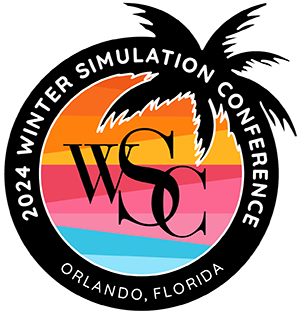Sunday, December 15
1-5pm
Additional Fee Required: $35
Sign up when you register for the meeting. Light refreshments will be provided.
Overview
This workshop, designed for newcomers, will cover Monte Carlo and discrete-event simulation. Participants will run and modify existing simulation programs downloaded prior to the workshop. An R package named simEd will be used in the workshop.
Topics include:
- Great Ideas in Simulation
- Monte Carlo Simulation
- A Single-Server Queue
- Input Modeling
- Statistics in Simulation
- Next-Event Simulation
- Discrete Random Variables
- Continuous Random Variables
- Output Analysis
Who Should Attend?
The target audience for the workshop consists of managers, computer scientists, and engineers with little or no familiarity with probability, statistics, and simulation.
Why Should You Attend?
Attending the workshop will help newcomers to simulation assimilate the technical sessions presented at the Winter Simulation Conference. Due to the limited time for the workshop, it will be very light on theory, but heavy on intuition associated with simulation. This will be accomplished by running through the conceptual, algorithmic, and implementation portions of the development of several simple Monte Carlo and discrete-event simulation models.
Workshop Schedule
Module 0: Great Ideas in Simulation
Module 1: Monte Carlo Simulation
Module 2: Introduction to Modeling – Queueing
Module 3: Input Modeling
Module 4: Random Number Generation & Random Variate Generation
Module 5: Next-Event Simulation
Module 6: Analyzing Simulation Output
Presenters
Barry Lawson, Colony Family Professor of Digital & Computational Studies, Bates College
Barry Lawson is a faculty member in the Program of Digital & Computational Studies at Bates College. His research interests are in agent-based simulation and computer science education.
Larry Leemis, Professor of Mathematics, College of William & Mary
Larry Leemis is a faculty member in the Department of Mathematics at William & Mary. His research interests are in computational probability, reliability, and discrete-event simulation.
